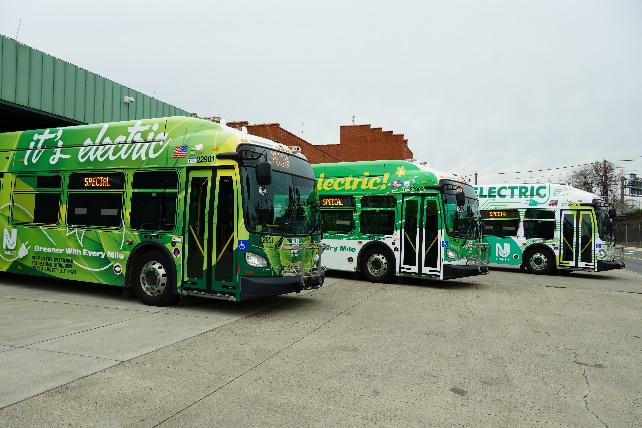It’s NJ Transit’s largest single bus procurement to date, based on an investment of a whopping $500 million, and is designed to replace NJ Transit’s aging diesel fleet. The bulk of the purchase covers 260 ‘clean diesel’ 40-foot buses, although technical details on how clean these really are haven’t been shared.
However, there are additional provisions made for the 26 battery-electric buses – again, no information shared on make or model here. However, in 2022, the transport authority did place an order with New Flyer for eight electric Xcelsior Charge NG forty-foot transit buses. This contract was meant to be valid for five years, up to 2027, and cover the option of purchasing up to 75 additional battery-electric units. So, it’s likely that the new battery-electric models could fall under this.
It may seem slightly unusual for a bus fleet modernisation strategy to include so many new diesel vehicles instead of battery electric buses or even PHEVs. The public transit authorities in many cities around the world are now putting emphasis on electrifying their fleet, rather than merely updating it.
But, NJ Transit insists that the move is part of its NJT 2030 plan and bus fleet strategy, which essentially states the agency will replace all outdated vehicles with newer models by 2030. It’s a relatively emission-agnostic strategy, but one that seems to have been achieved.
NJ Transit president & CEO, Kris Kollun, said: “Authorising these bus purchases marks the necessary final step toward the full modernisation of our fleet by 2031 for the first time in the agency’s 45-year history […] Customers will see the impact through vastly improved reliability, enhanced safety features, and a customer experience our riders deserve.”
njtransit.com


